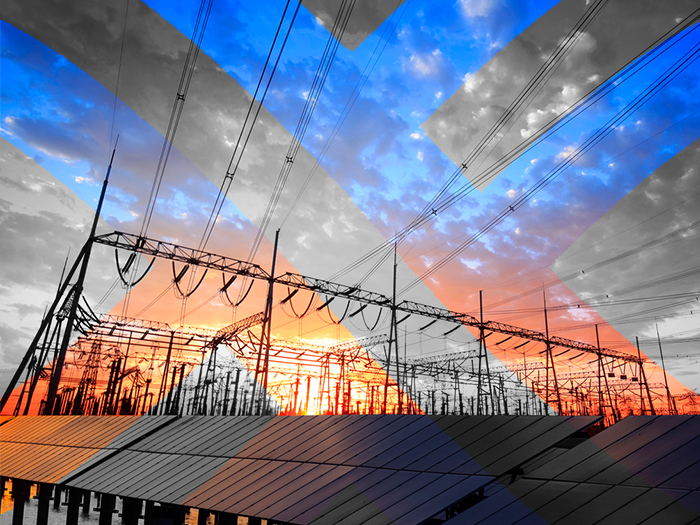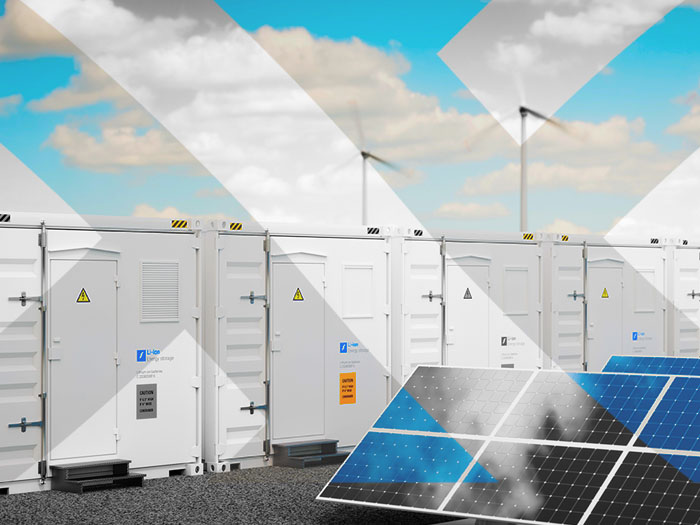Insights
better business decisions
Posted 3 years ago | 3 minute read

Network operators must review severe weather plans
Britain’s energy network operators will have to implement new measures to handle severe weather events better, the government has said.
Reported as being one of the most damaging storms experienced in at least 15 years, Storm Arwen affected around 1,000,000 homes and businesses. At its worst impact, around 500,000 electricity customers were left without power of which nearly half were across the northeast of England, Yorkshire, and Lincolnshire.
In its review of the industry’s response to Storm Arwen in November 2021, BEIS called on electricity network operators to review their severe weather escalation plans, improve communications systems and strengthen compensation payment mechanisms.
“This action plan will ensure better preparedness for future storms, boosting the security of our electricity system and protecting families,” Business and Energy Secretary Kwasi Kwarteng said.
“Severe weather events are likely to become more common, as the effects of the climate change are felt, so it is imperative that all Distribution Network Operators (DNOs) are well prepared,” Ofgem said in a statement.
Ofgem’s key recommendations are:
- DNOs should submit their winter preparedness plans to Ofgem so the regulator can be assured that DNOs have taken the necessary steps to ensure that all customers, especially vulnerable customers, can be supported effectively during power disruptions.
- DNOs should stress test their websites and call centres to ensure adequate capacity during severe weather events. Additional reporting metrics for communication channels will fit within the next RIIO-ED2 price control settlement that will be determined this year.
- DNOs to develop more robust mechanisms to enable the delivery of compensation payments at scale, enabling timely and accurate compensation to those eligible.
- Ofgem will review the Guaranteed Standard of Performance (GSoP) for severe weather to identify amendments that should be made to better reflect the impact of extended power cuts. And in the meantime, we recommend DNOs should voluntarily lift the cap for future storms as they did during Storm Arwen.
- Current network infrastructure and guidance including vegetation management and overhead line designs should be reviewed to increase network resilience to severe weather events.
- A standard-based approach to organisational resilience should be considered by E3C to improve the speed of customer restoration during severe weather events. It is noted that current standards and guidance that support the DNOs in providing a reliable network are more focussed on preventing outages rather than how to respond during a power outage.
GridBeyond Managing Director UK and Ireland Mark Davis said:
“By their very nature, our electricity networks are designed to be as robust and resilient as possible. But natural hazards such as extreme weather, systems failures and malicious attacks on infrastructure all present risks for the grid, and therefore for businesses. In addition, given that the grid is becoming increasingly intermittent as we move to an energy system progressively underpinned by renewables there is widespread recognition of the benefits of improving resilience by taking measures behind the meter.
“More and more businesses are choosing to add energy storage to their site, where in the event of a power failure or voltage dip either on site or the local electricity network, the battery installation will supply reactive power, reducing the possibility of a brownout or blackout, eliminating down-time and ensuring critical systems remain unaffected.
“GridBeyond understands the complexities of battery storage technologies and will work with you to install on-site battery storage system that provides clean, stable and uninterrupted energy supply, eliminating the risk of grid disruption. All at no up-front cost to your business.”

CapEx-Free Battery | Resilience, carbon reduction and revenue
GridBeyond understands the complexities of battery storage technologies and will work with you to install on-site battery storage system that provides clean, stable and uninterrupted energy supply, eliminating the risk of grid disruption. All at no up-front cost to your business.
Learn more





